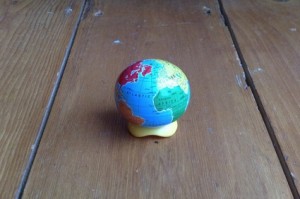 The things that you consider to be typical parenting techniques might seem strange to people who live outside of the United States. Likewise, some of what parents in other countries do may seem weird to parents here. It’s all a matter of perspective. What works well for parents in one place might not be acceptable to do in other places.
The things that you consider to be typical parenting techniques might seem strange to people who live outside of the United States. Likewise, some of what parents in other countries do may seem weird to parents here. It’s all a matter of perspective. What works well for parents in one place might not be acceptable to do in other places.
NPR has an article titled Global Parenting Habits that Haven’t Caught On In the U.S.. It was written by Emily Lodish and posted on August 12, 2014. In it, she points out some parenting techniques that are commonly practiced in countries outside of the United States.
Many of the ones she points out would not work well here in the United States. For example, in Japan it is common for children to ride the subway by themselves (unattended by a parent). The children, some as young as four years old, are able to run errands and wander around town on their own. Obviously, this parenting practice would not work well in the United States.
In Vietnam, Lodish writes, moms and dads practice a parenting technique that is not common in the United States. The parents in Vietnam use a system that involves a whistling sound that is made whenever an infant urinates. The babies learn to associate the whistle with urination. As such, parents in Vietnam are able to have their babies out of diapers by 9 months of age.
This is not a common practice in the United States, where toilet training typically begins when a child is a toddler. However, there are some parents here who do practice elimination communication. It involves making a sound that the infant eventually associates with urination. Parents who use this parenting technique can train an infant to “go” into a toilet (with help from the parent) instead of in a diaper.
In Norway, children begin going to Barnehage (or “children’s garden) when they turn one year of age. It is a state-subsidized day care system. Children arrive there at 8:00 in the morning and stay as late as 5:00 in the evening. The children go outside into very cold weather quite often.
In the United States, there are some parents who bring their infants to a day care several days a week. The cost of the day care is not subsidized by the government here, though. This means that there could be parents who would like to put their infant into a day care but cannot afford to do so. This parenting technique is limited to those who have the money to pay for it.
Image by Clive Darra on Flickr.
Related Articles:
* What is Elimination Communication?
* Is Daycare Good For My Baby?

